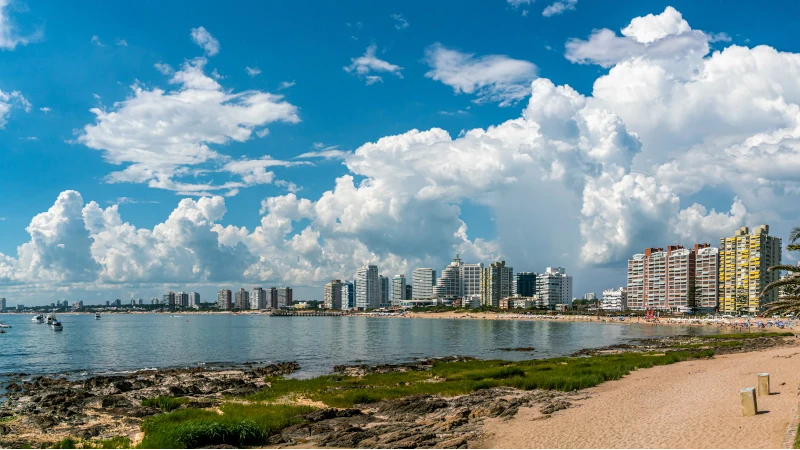Taxes In France Explained
France is a high-tax country… but this doesn’t really matter for U.S. retirees because of the U.S.-France tax treaty.
The social security system is regarded as one of the best in the world, offering a universal health care plan almost free of cost.
Pensions are first-world, and there are even more benefits available to help families maintain and establish themselves when needed.
But these large benefits can’t come at large expenses. Indeed, the levels of social security contributions maintaining said system are some of the highest in the world (43.3% of GDP).
That doesn’t mean you couldn’t live or retire here because of taxes. Those who looking into retiring in France will happily discover that they have little to pay tax-wise.
Even for some businesses, social security contributions can even be tax-deductible in their entirety, depending on your tax regime.
Most importantly, to understand the French tax system and laws and how they apply to you as an expat.
Income Tax In France
Paying Income taxes in France (or Impôt sur le revenu) depends on your residency status.
- Non-residents: You have a 6-month time frame where you’ll only pay for earnings in France, at a minimum of 20%.
- Residents, or deemed tax residents: You must pay for your worldwide income.
Note that in order to be deemed a tax resident, you must spend 183 days or more in France, or do your principal business activity in France. In the case you wondered, American taxpayers have a treaty to prevent double taxation in this country. The residency is then defined in relevancy to the Double Tax Treaty.
Personal Income Tax Rates (Year 2024) – Impôt sur le revenu
These rates are applied based on the household’s total income.
In France, tax rates work in slices. Let’s say you have a net taxable income of 20,000 euros a year. 9,700 euros would be free of charge, while the remaining 10,300 euros would be taxed at 11%. Children generally allow a reduction of €1,510 per child.
Even though you may be below the minimum income tier, if you are resident in France, you are required to submit an income tax return.
Taxable Income In France
Worldwide income: Your salary, all pensions, savings interests, rental and investment incomes. Also, income from business activities not subject to the French company tax.
Excluded income covers social security payments, some french bank savings options, and allowances for students.
Pension Income: US pensions are generally not subject to tax. You have to report them, though, and they may be subject to social security payments to cover for the public healthcare plan.
401Ks and IRA deductions aren’t treated as income to the french, as “you already earned it”.
Foreign Savings Income: Foreign savings are taxable in France and thus must be declared, but you can get a tax relief if you pay taxes on these back in your country.
French Rental Income: All rental income earned in France will need declaring, whether you are a resident or not. The taxation depends on the rental, whether it’s furnished, unfurnished, size, and its type.
Furnished accommodations are taxed at 50% or 29% of gross income. But it depends on the type of rental you are letting.
Repairs, maintenance, and works that fix or answer to a problem in the property may be tax deductible, while aesthetic changes are not.
French Business Income: The standard rate for business income tax is 33.33%. Although it can be pricey, there’s a special micro and auto-entrepreneur business models that offer tax reliefs. You can get allowances that can range from the 71% of your gross income to 39%, depending on your size. Then, you would be taxed on the rest of your turnover.
So for example, a business that makes 20.000 euros could get a 50% allowance, and be taxed only 10,000 euros of their total revenue.
Real Estate Taxes In France
Several taxes are associated with the purchase of France real estate. Taxes you may cover are:
- Transfer Tax
- Government Tax
- Property Tax
- Inheritance Tax
- Wealth Tax
- Rental Income Tax
- Capital Gains Tax
A transfer tax of 7.5 percent is charged when a property in France is sold. When you buy a home in France, the government charges a tax on the mortgage. The amount charged depends on the amount of the loan.
Property taxes are the most complicated to calculate and are based on:
- Whether the property is a main or secondary residence
- Area of the city
- Age of the building
- Size of the property
Apartment buildings are similar to condos in the U.S. and have a monthly fee attached to them. The tax depends on the size of the apartment and the area in which it’s located. Beneficiaries of an estate must pay the inheritance tax.
The amount to be paid depends on the relationship between the surviving family member and the deceased owner of the property. The wealth tax is paid by individuals that have more than €720,000 in assets. If you aren’t a legal resident, the tax is only based on your French assets.
Also, owning a property in France makes you accountable for two types of taxes, called taxe Foncière and taxe d’habitation.
Taxe Foncière, or Property Ownership Tax
This is a tax imposed by the owner of the property, whether he lives in it or not. This tax is paid yearly on the first on January, on a yearly basis.
The tax serves as funding for the local community and other councils. They determine the paying amount, while the central tax authority calculates collects it.
In short, the tax rate varies a little, but it should be around 0.2% for a main household, while second homes rate for 1.2% to 1.7%, depending on their value.
- New buildings are granted a full exemption for up to two years in declared to the taxmen 90 days before completion. Commercial buildings are only granted a part of this exemption.
- A 50% to full exemption for 5 years to constructions erected at a government desired energy efficiency standard. This exemption only applies to buildings built before 1989.
- Landlords having difficulties lending their property for different reasons can obtain a relief on the tax.
Taxe d’Habitation, or French Residence Tax
This is an annual tax aimed at the occupier of the property. For main homes, the rate is 0.2%, while second homes can go from 1.2 to 1.7%. If you have children, a relief of 10% to 15% for each child is granted, and only applies to the main residence.
If you seek to retire in France, seniors can be exempt from the tax if they are under the established income thresholds. Those range between 10,708 euros for one person and 16,426 euros for a couple under the same conditions.
Capital Gains Tax
Called impôt sur les plus values, is a tax imposed on the sale of mostly real estate and other heavy investments. There are three different types of capital gains transactions: Personal Property, Real Estate, and Shares.
The tax rate allocated for capital gains is currently a total charge of a whopping 34.5%.
Furthermore, there’s even a supplementary rate of tax applicable depending on the amount of your gains. It can range from 2% for 50 thousand euros in gains to 6% for 250 thousand euros and up.
Although, this can be avoided depending on the number of owners of the goods. If two 50/50 owners make an 80 thousand euro capital gain, they wouldn’t be liable as each gain represents 40 thousand euros each.
Wealth Tax
A known but misunderstood tax payment, as it has been misadvertised by a handful of people who don’t want it for themselves.
You shouldn’t worry all that much about the wealth tax as an average expat, as the rates kick in for worldwide net assets above 1,300,000 euros, and only after 5 years of residency.
Furthermore, if you are still a non-resident, you are only taxable for you French assets.
If that threshold is met, tax rates go from 0.50% and 1.50% of the taxpayer’s total wealth.
Filing Taxes And Paying Taxes In France
You generally have three options to pay your taxes in France:
- Once a year: filing at the end of May manually, or end of June filing online.
- Quarterly
- Every month
You can pay on-line, directly, or by check.
Paying on-line is the most desired method, as it is the fastest, with minimum costs of time and money.
Also, once you file your taxes for the first time in France through this service, you will get the exact form every year to your personal mail, making it almost automatic to file them next time.













 . '
. '
 . '
. '
 . '
. '
 . '
. '
 . '
. '








